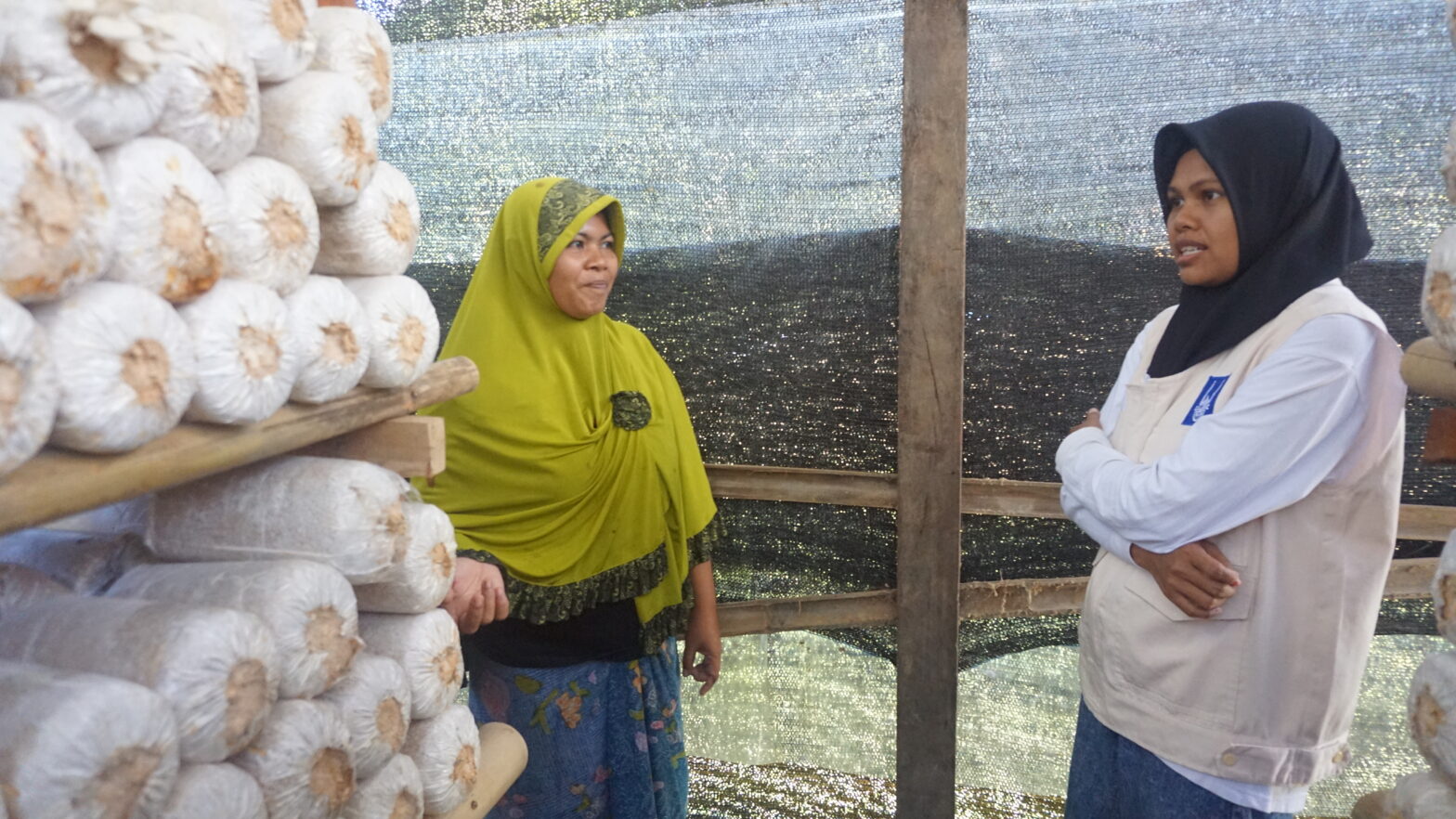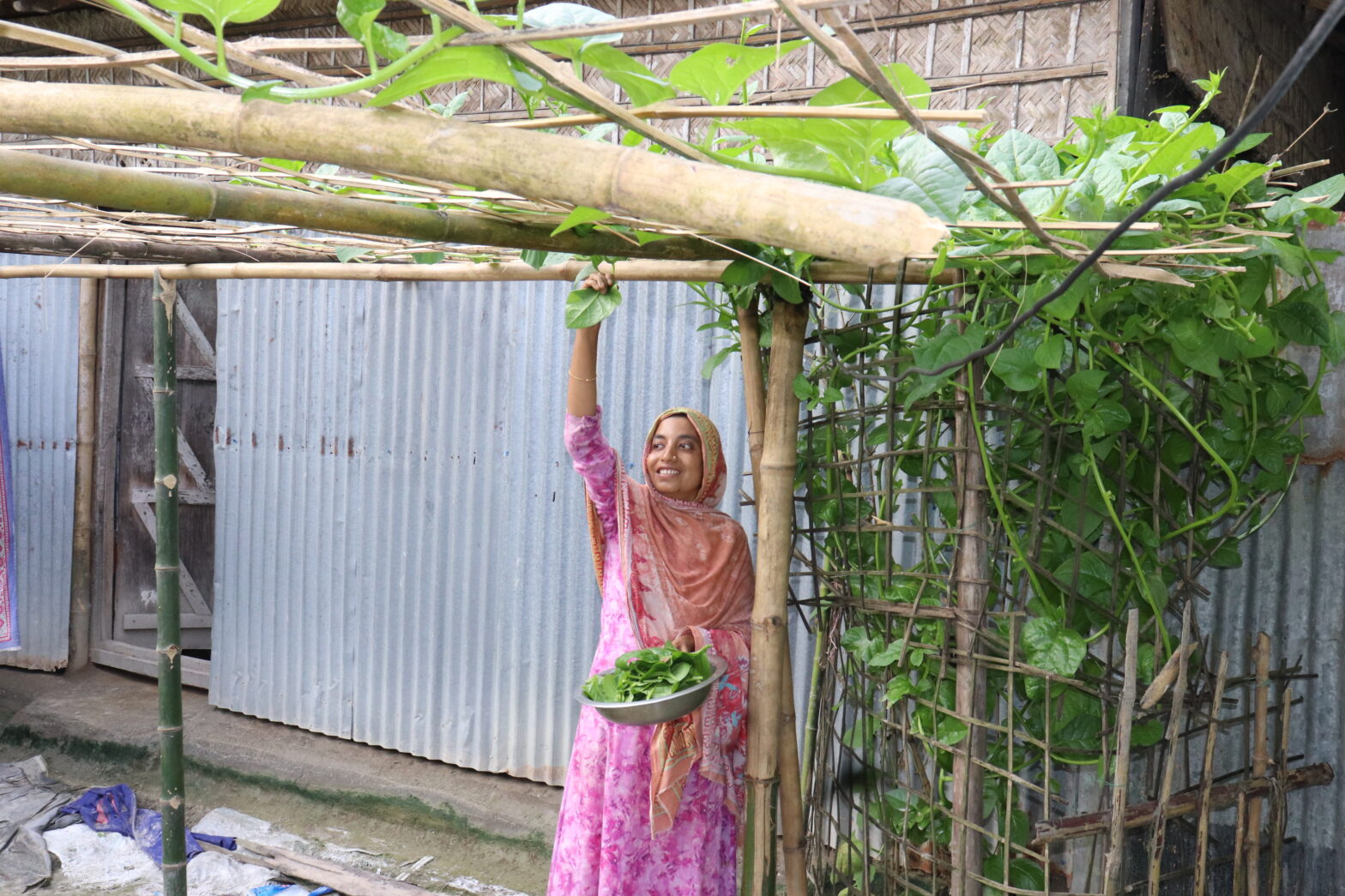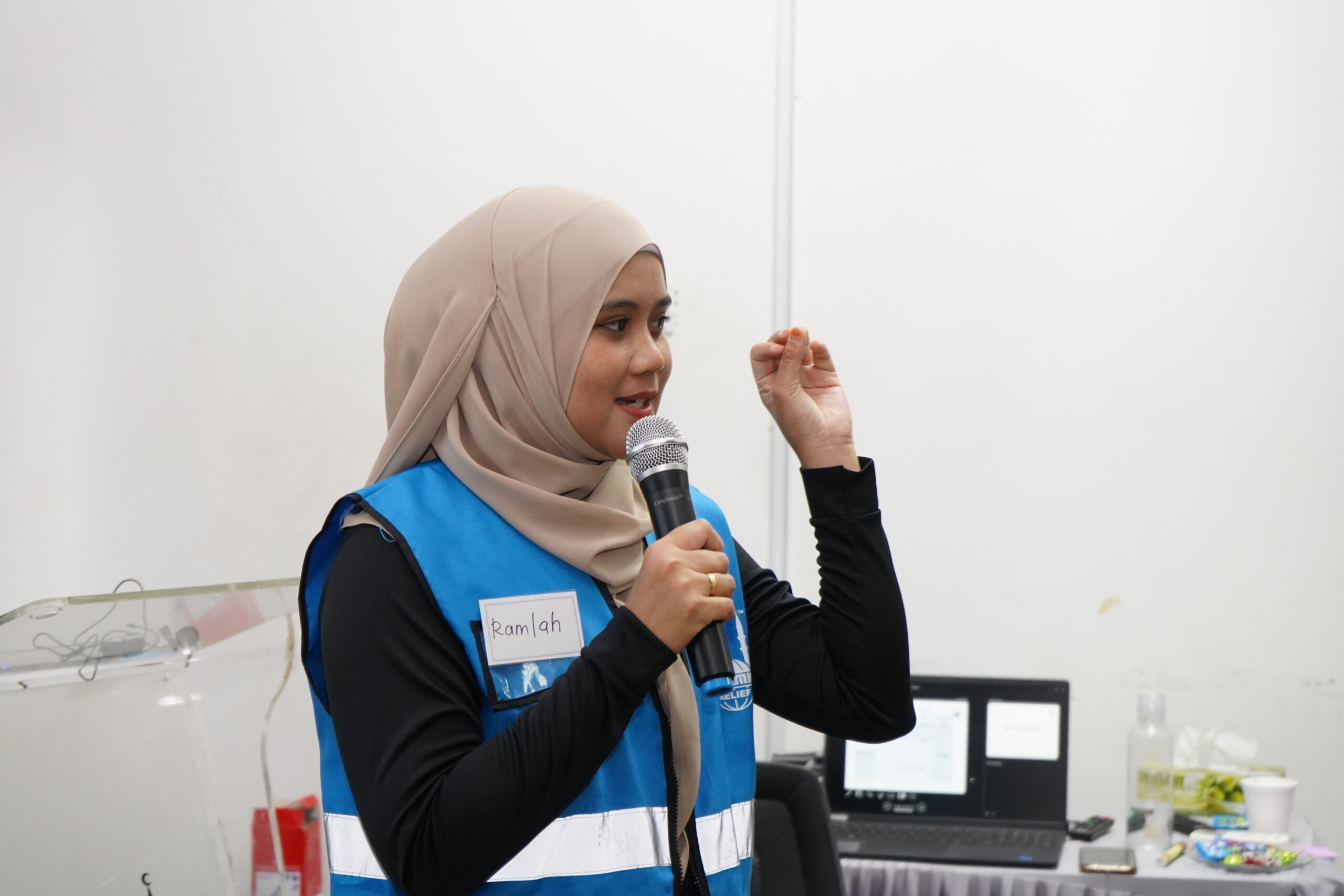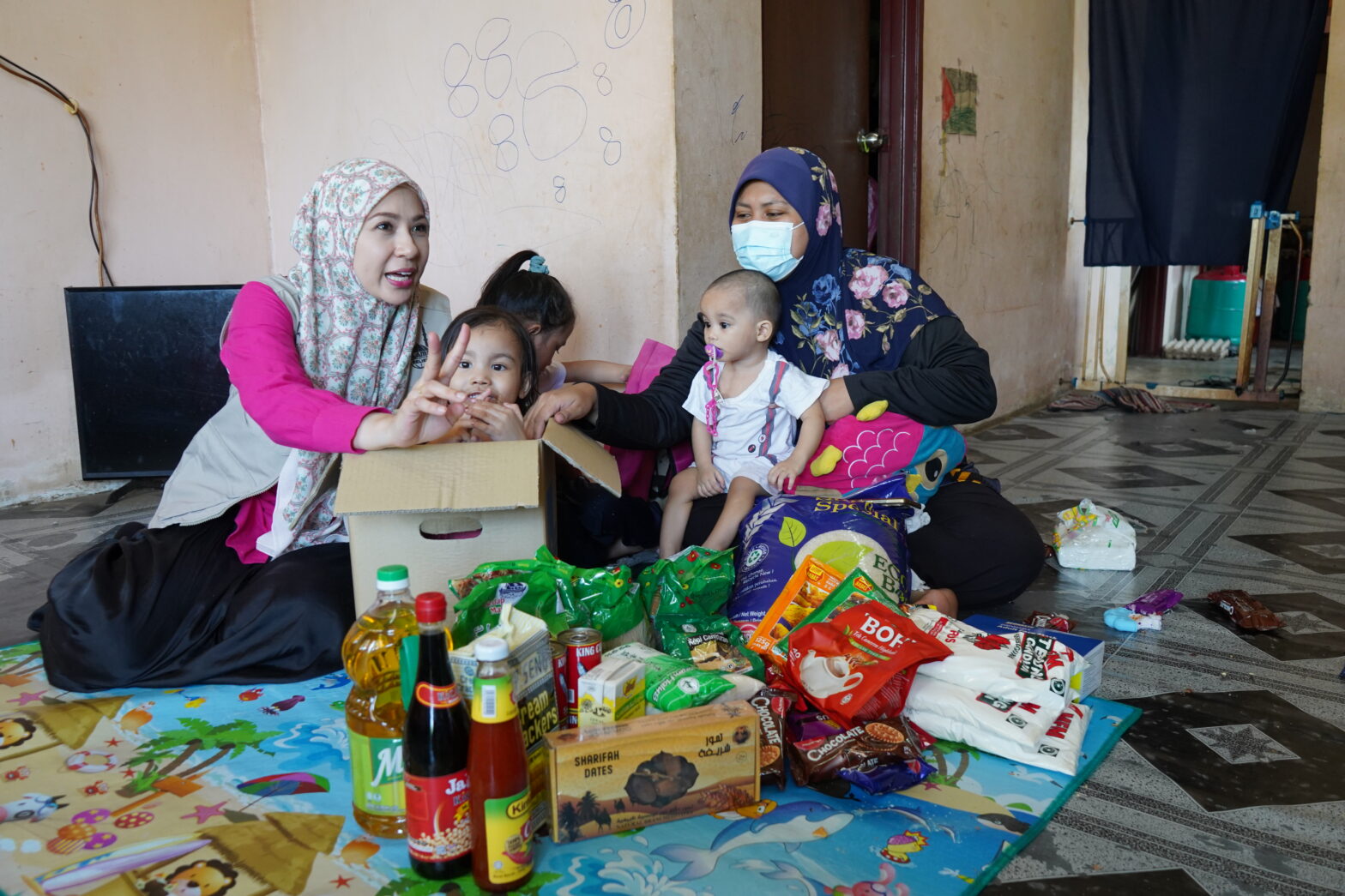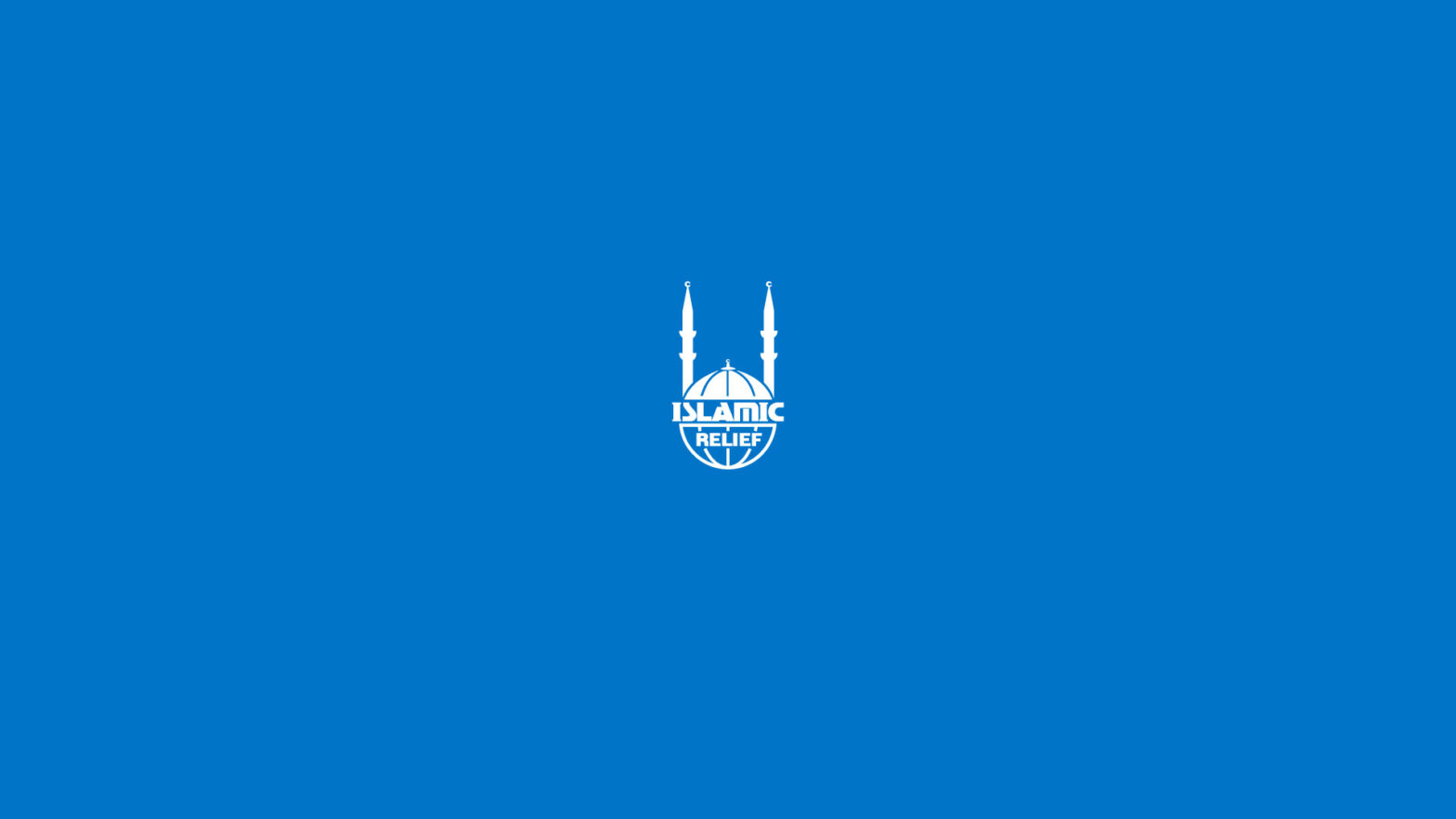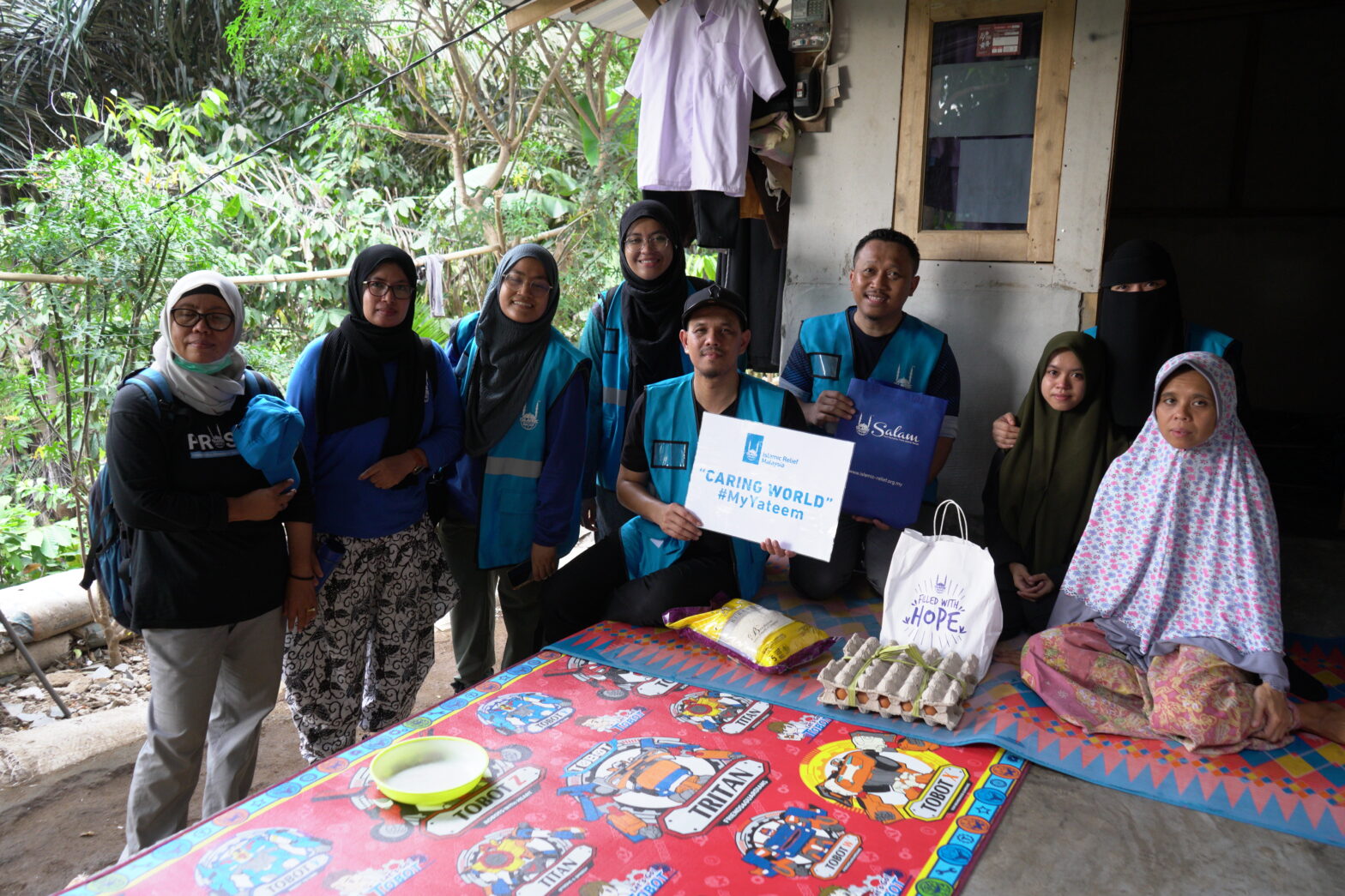The theme for International Women’s Day 2024 is ‘Inspire Inclusion’, celebrating the diversity and inclusion of women to create more equal societies, and fairer environments where women feel empowered.
To mark International Women’s Day, we are sharing stories of some of the amazing women Islamic Relief supports around the world.
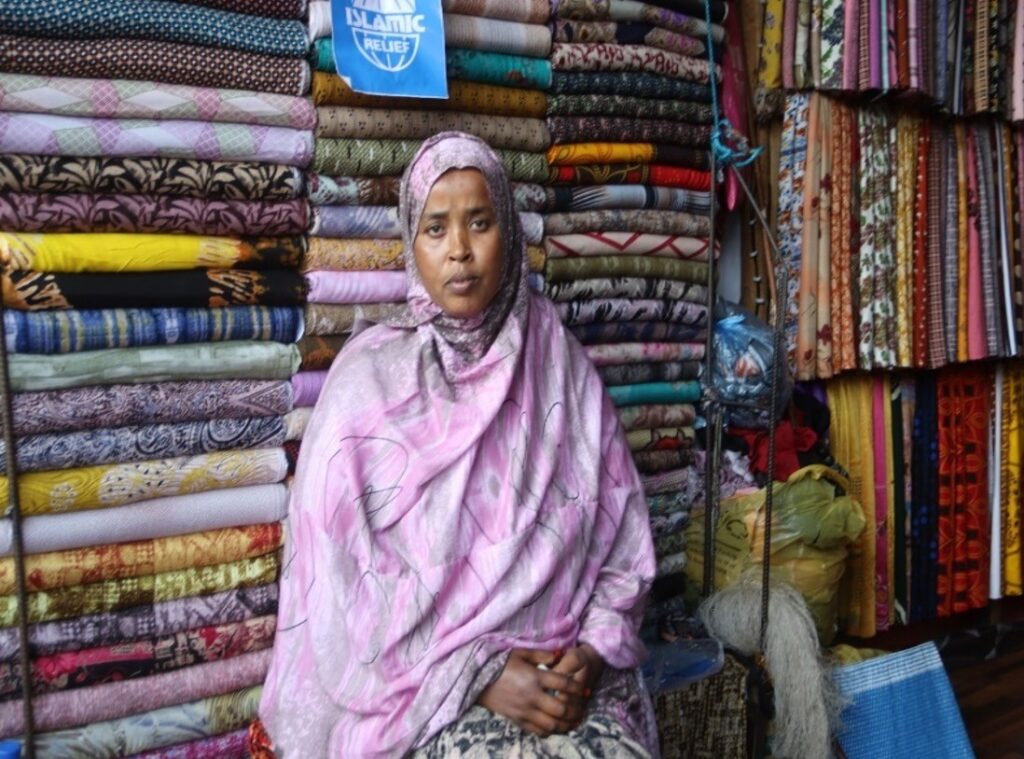
Stitching a future in Ethiopia
“Every stitch I make is a step towards a better future for my children,” says Ifrah, a young mother who had to rebuild her life in eastern Ethiopia after she was violently forced from her home.
Fleeing with her 5 children, Ifrah eventually settled in the town of Jigjiga where she planned to open a small shop selling clothing that she had handstitched.
Ifrah initially struggled to make her dream a reality, but after coming into contact with Islamic Relief, she received funds and training to open her shop. Ifrah says the support she received from Islamic Relief’s Youth and Woman Empowerment Project (YWEP) went even deeper.
“It’s not just about the money. It’s about the trust that Islamic Relief placed in me, the belief that I could rise.”
Despite the challenges of launching a business in a period of economic uncertainty, Ifrah has been able to turn her shop into a resounding success.
In the beginning, Ifrah would struggle to make as much as 100 ETB (approx. RM8) a day, but the business has now grown to a position where she draws in 15,000 ETB (approx. RM1200) a month.
“There were days when inflation hit us hard,” she recalls. “But with every challenge, I learned, I adapted. Islamic Relief’s training wasn’t just about business; it was about resilience.”
Ifrah hopes her shop will inspire others in Jigjiga.
“My dream? It’s to see a street lined with businesses run by women,” she says with a smile.
“Women who started with a small seed, just like I did.”
Harvesting independence in Indonesia 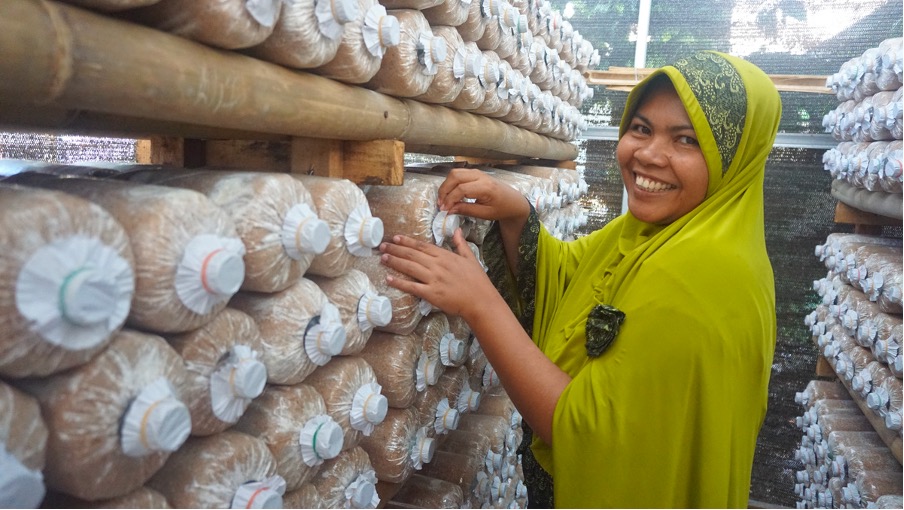
On the island of Lombok in Indonesia, the green mushroom houses of Uus’s farm are a testament to her hard work and the support of Islamic Relief’s Sustainable Livelihood Project.
“There was a time when uncertainty was the only certainty we had,” Uus recalls.
“Islamic Relief changed that for us; they gave us the tools and the confidence to grow, not just mushrooms, but our dreams.”
The Sustainable Livelihood project in Lombok provides women with training, tools and equipment, as well as financial support to launch enterprises such as mushroom cultivation.
Uus’s mushroom farm has become more than a source of income, it is now a beacon of collective achievement for the community.
“We’re not just growing mushrooms; we’re growing lives,” she says.
Her business now harvests up to 40 kilos of fresh mushrooms daily and employs 10 local workers.
“Islamic Relief taught us to cultivate hope, and now hope blooms in every corner of our farm. This farm is our heart,” she says warmly, “and it beats strong for our community.”
The training and financial support provided by Islamic Relief have helped Uus and her husband develop a thriving business, while also planting seeds of self-reliance in her neighbours.
For Uus, the message is clear:
“When one of us rises, we all rise. My success is our success, and I dream of a day when every woman in Lombok has the means to write her own story of triumph.”
Honouring inspiring women
As we mark International Women’s Day, Uus and Ifrah’s stories reflect a shared vision of a better future – a future where every woman has the opportunity to thrive and lead change in her community.
Islamic Relief celebrates the resilience and ambition of women like Ifrah and Uus, who are not only rebuilding their lives but also paving the way for others to follow.
Their journeys remind us that when women are given the chance to succeed, they create a stronger, more inclusive world.
Support our vital women’s empowerment work, which enables vulnerable women to gain agency over their lives: please donate now.



